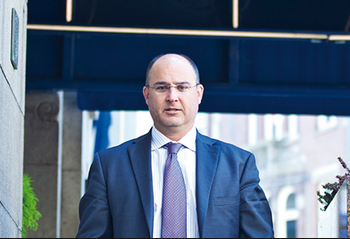In 1999, Robeco launched the Robeco Sustainable Equity Fund, one of the first sustainable funds in the market. Since then, and almost 20 years later, the asset management company continues to insist that we are not facing a trend, but rather a new way of understanding investments and the environment. “The time has come to take advantage of the wave of popularity of sustainable investment to make a real change in the way we invest,” says Masja Zandbergen, Head of Sustainability Investment and Integration of ESG criteria at Robeco.
For Zandbergen, sustainable investment is a response to the reality surrounding us, which explains the success it’s having among investors. “There are certain megatrends which justify the weight gain of sustainable investment. Climate change, increasing inequality, and cyber security are three clear trends. To these we must add the great change suffered by consumer behavior, something that is also transferred to finance. Investors not only want profitability, but to be responsible with their current environment and with that of future generations”, she points out.
In this regard, Zandbergen argues that just as there has been a change in the investor, there has also been a change in the way in which this type of investment is approached: “Whereas previously investment was sought in certain activities and when a company did not act in a sustainable manner, investors tended to sell those assets, the current approach is to help companies to meet their challenges in terms of ESG criteria, something that investors also value more because they consider that it has a greater impact and greater capacity for change,” she says.
Evidence of how sustainable investment has changed is the evolution of the common investment strategies. “Exclusion continues to be the most common strategy, but the strategies that grow most among investors are those of integration of ESG criteria in impact analysis and investment, proof of which is the popularity of the thematic funds,” explains Zandbergen. In fact, these grew by 13.3% and 20.5% between 2014 and 2016, according to Robeco’s global data.
The management company argues for a comprehensive vision of sustainable investment because it provides valuable data to the non-financial analysis they carry out. “We looked at the ESG fundamentals and criteria and, in 35% of cases, we found that these had a significant impact on the financial analysis. In an erratic world of profitability, I believe that sustainable investments have earned their place,” she concludes.
Another trend observed by Zandbergen regarding sustainable investment is that there is increasing evidence that ESG criteria are an engine that drives the good behavior and profitability of an asset. In her opinion, “it’s clear that sustainability is a factor that influences the valuation of an asset simply because of the risks it avoids”. One further step would be, according to her criteria, that you could come to consider a factor when investing. “We are still far from something like that, but there is growing evidence of the fact that, in the long term, these criteria add value,” she insists.


 By Alicia Jimenez
By Alicia Jimenez
 By Fórmate a Fondo
By Fórmate a Fondo